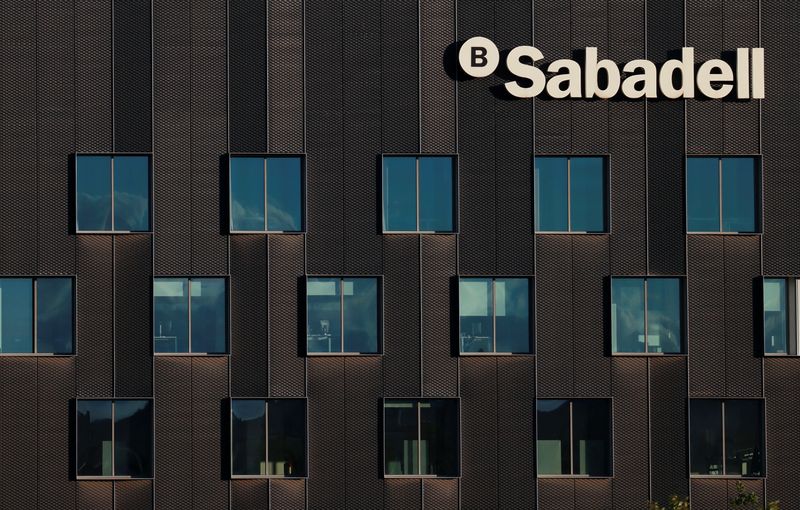By Jesús Aguado and Andres Gonzalez
MADRID/LONDON (Reuters) -Spain's Sabadell is not planning to try and buy a competitor as part of a potential defence strategy against rival BBVA (BME:BBVA)'s hostile takeover attempt, Chief Executive Officer Cesar Gonzalez-Bueno told Reuters.
Spain's No. 2 lender BBVA this month stunned Spain by making the first hostile takeover attempt in Spanish banking since the 1980s, after Sabadell's board rejected an initial bid on the grounds it significantly undervalued the lender.
"We are not going to acquire anything. We are not going to sell TSB," Gonzalez-Bueno said, referring to British bank TSB, which Sabadell owns.
Acquiring rivals or selling off parts of a business can be a way for target companies to complicate hostile takeovers.
Under Spanish law, the governing body of a company subject to a hostile offer must remain passive and request shareholder approval before taking any action that can prevent the bid's success.
Rejecting BBVA's offer - which is also opposed by Spain's government - Sabadell says it will focus on its own growth prospects.
It wrote to retail shareholders - who own half of Spain's fourth-largest bank - this week as it starts the process of trying to convince its investors the lender is better off alone.
In the letter, Chairman Josep Oliu said the takeover process could run until late 2024 or to 2025 and that Sabadell had "excellent prospects".
Sabadell's shares had risen around 9% since the day before news of BBVA's bid broke while BBVA's have fallen about 10%, suggesting shareholders of both lenders are not entirely persuaded of the merits of the offer or whether it will succeed.
BBVA has offered an exchange ratio of one newly-issued BBVA share for every 4.83 Sabadell shares, a premium of 30% over April 29 closing prices that valued Sabadell at 12.23 billion euros.
That premium is now around 7%, valuing Sabadell at around 11 billion euros, according to Reuters calculations.
Sabadell, which enlisted Goldman Sachs and Morgan Stanley as advisors after the initial offer was announced, has limited options to ward off its bigger rival.
The deal, which triggered immediate opposition from the Spanish government, requires multiple regulatory approvals.
Gonzalez-Bueno said he believed the deal could run into regulatory hurdles related to the increased market share a combined entity would have in small and medium-enterprise (SME)lending.
Sabadell is the leading bank in SME lending with a market share of 12.7% compared to 11.5% for BBVA.
"What happens to competition with this operation is a national problem, not only in Catalonia and Valencia," Gonzalez-Bueno said, referring to the eastern regions of Spain where Sabadell is strong.
"In the extreme, the CNMC could say that if BBVA wants the merger, they have to carve-out the whole perimeter of SMEs," the executive warned.
Spain's anti-trust watchdog CNMC declined to comment.
On Wednesday, Spain's Economy Minister Carlos Cuerpo reiterated the government's opposition to the deal, citing increased concentration and reduced competition, adding that "I don't want to anticipate any conclusive elements of any of the analyses that are not ours to undertake".
A combined BBVA and Sabadell would overtake Caixabank as Spain biggest bank by domestic assets.

However, with a combined market share of 21.9% in loans it would rank below the 25% market share held by Caixabank, according to BBVA, although it would have a much bigger presence in regions such as Catalonia and Valencia.
Spanish banking has gone through waves of consolidation, with the number of lenders down to 10 from 55 before the 2007/08 global financial crisis.